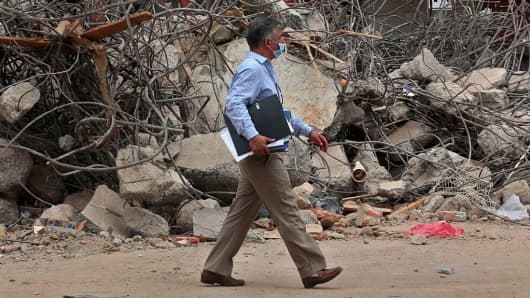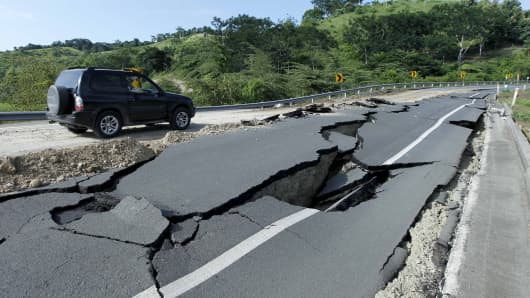Rodrigo Buendia | AFP | Getty Images
Pedernales, one of Ecuador's worst-hit towns, two days after an earthquake hit the country.
Ecuador has asked the International Monetary Fund (IMF) for aid after this month's massive earthquake killed hundreds of people and laid extra stress on the struggling economy.
On Wednesday, an IMF official said it had received a request for a credit line from Ecuador, according to Reuters. The country might receive up to $368 million during the course of the loan, the newswire calculated.



No comments :
Post a Comment